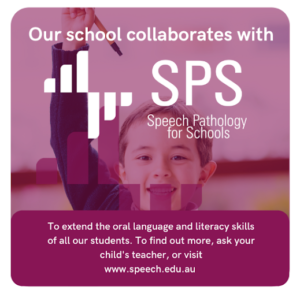At St.Peters we see literacy as central to all learning. Through explicit instruction students develop knowledge and skills in the areas of: reading, writing, speaking and listening.
We link reading and writing, and use a range of mentor texts to engage students. Teachers use ongoing assessment data to make informed decisions about the needs of students. Formal and informal assessments occur throughout the year.
informed decisions about the needs of students. Formal and informal assessments occur throughout the year.
At St. Peters we aim to:
- Develop a love of reading by exposing students to a range of literature
- Engage students in independent reading, student/teacher conferences to set personal goals in their reading journals, small group workshops and undertake purposeful reading tasks to develop their skills
- Develop skills in the areas of phonemic awareness, phonics, fluency, vocabulary, and comprehension through explicit instruction
- Teach spelling with an emphasis on meaning and vocabulary development
- Develop students’ understanding of the writing process and to know how to vary the process for different genres and purposes
- Engage students in modelled or shared writing experiences, small group workshops and student/teacher conferences where goals can be set to meet the needs of individual students
- Provide opportunities for students to share, reflect on and articulate their learning at the end of each reading and writing session
- Provide opportunities to further support students’ oral language and literacy development by engaging with Speech Pathology for Schools (SPS). SPS operates under the guidance of St. Peter’s. Students are selected and work in small groups in response to school data. SPS does not replace therapy sessions outside of school or focus on articulation.
- Provide additional support and implement structures for students as required. This may occur both in and out the classroom through intervention programs such as Levelled Literacy Intervention (LLI) and MultiLit (MiniLit and MacqLit)

